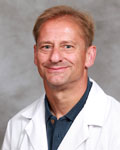Sleep Awareness Week Highlights the Important Role Sleep Plays in Overall Health and Wellness
 Coinciding with the beginning of Daylight-Saving Time, March 11 – March 17, 2019, marks this year’s Sleep Awareness Week. The National Sleep Foundation (NSF) celebrates this year’s Sleep Awareness Week with the theme, “Begin with Sleep” to highlight the critical role sleep plays in overall health and wellness. The observance of Sleep Awareness Week begins each year on the day we set our clocks ahead one hour to begin Daylight Saving Time—using the occasion where we lose an hour of sleep to raise awareness about the importance of a good night’s sleep.
Coinciding with the beginning of Daylight-Saving Time, March 11 – March 17, 2019, marks this year’s Sleep Awareness Week. The National Sleep Foundation (NSF) celebrates this year’s Sleep Awareness Week with the theme, “Begin with Sleep” to highlight the critical role sleep plays in overall health and wellness. The observance of Sleep Awareness Week begins each year on the day we set our clocks ahead one hour to begin Daylight Saving Time—using the occasion where we lose an hour of sleep to raise awareness about the importance of a good night’s sleep.
“Sleep plays a critical role in our overall health and wellness. It’s just as important as diet and exercise,” said Robert Kosinski, MD, Medical Director of Monmouth Medical Center’s Sleep Disorders Center, the first facility in Monmouth County to earn accreditation from the American Academy of Sleep Medicine. “Regularly getting a full night’s sleep can not only influence your appearance and energy levels, but it also has a significant impact on your physical and psychological health, including the ability to learn new information, stay at a healthy weight and lower your risk for developing chronic illnesses.”
A “full night’s sleep” can vary slightly from person to person, but as a guideline, the NSF recommends that teenagers (ages 14-17) get eight-ten hours of sleep, adults (ages 18-64) get seven-nine hours and older adults (65+) get seven-eight hours each night.
“Adequate sleep helps to improve your memory, boost your immune system to help you get sick less often, improve your mood and reduce stress, improves decision making, and helps to avoid accidents and injuries,” added Dr. Kosinski.
Sleep deprivation, on the other hand, has tremendous negative effects on your overall health and wellness.
“The cumulative long-term effects of sleep deprivation and sleep disorders have been associated with an increased risk of hypertension, diabetes, obesity, depression, heart attack and stroke,” said Dr. Kosinski. “Sleep deprivation puts individuals three times more at risk for developing type 2 diabetes and at a 48 percent increase in risk for developing heart disease. Getting the proper amount of sleep can help you lower your risk of these conditions”
Perhaps just as important as the length of time you are sleeping is the quality of sleep you are getting. “Take a proactive approach to bed times,” said Dr. Kosinski. “Go to sleep at the same time every night and make sure to allow yourself 7 to 9 hours of sleep, even on the weekends.”
Other tips for improving your sleep quality include:
- Make your bedroom the ideal sleep environment. The room you’re sleeping in should be kept quiet, dark and cool for the best possible sleep.
- Check the condition of your bed and pillows. A good pillow should prop up the head, neck and shoulders and it should also feel comfortable to help you get a good night’s sleep and feel well-rested.
- Exercise regularly. Regular vigorous exercise will improve the quality of your sleep.
- Turn off electronics while sleeping. Electronic devices in the bedroom disrupt the natural pattern of the sleep-wake cycle, and people who leave their devices on throughout the night typically get less hours of sleep and poorer quality of sleep.
Dr. Kosinski reminds you to not only be proactive about seeking ways to get a good night’s sleep during National Sleep Week and on Daylight Saving Time, but all year round. Sleep deficiency interferes with your physical, mental, and psychological health as well as the safety of you and others, yet sleep disorders are not always readily apparent. So, the controlled environment of a sleep disorders center, and the multidisciplinary approach of a comprehensive center, can help pinpoint a clear diagnosis. Patients must be referred to the Monmouth Medical Center Sleep Disorders Center. Referring physicians receive detailed reports on patient diagnoses and suggested follow-up treatment. For more information on the Sleep Disorders Center at Monmouth Medical Center, an RWJBarnabas Health facility call 732.923.7660 or visit rwjbh.org/Monmouth.